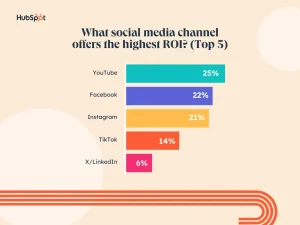
With technological advances, emerging trends on social media present challenges to marketers. Being able to reach your audience efficiently will involve developing a fuller understanding of the possibilities of technology while also noting ethical considerations.
Threads is giving consumers an unprecedented chance to reach them in their native spaces, while an increasing emphasis on the metrics behind ‘likes’ is being replaced by an emphasis on ‘shares’ that can create personalised feeds for every user.
Micro-influencers
In the digital marketing world, social-media trends are changing the playing field that businesses need to keep up with, while integrating newly adapted trends with a technological flexibility, within an ethical and people-centred strategy leads businesses to success.
Micro-influencers are a marketing dream, thanks to the authenticity they lend brands, the trust that they build, the niche, specialist knowledge they can share, and the hyperlocal, curated reach they can offer. Their smaller audiences also allow them to reach their audience at scale while simultaneously affording targeted engagements with high engagement rates matched by a hyper-local reach.
For instance, imagine that a coffee shop based downtown hopes to boost foot traffic and awareness of its brand in its neighbourhood. By engaging with micro-influencers to promote quirky and charming qualities of their location and review new products they’ve launched, while simultaneously broadcasting a personal experience the micro-influencers have had at the coffee shop’s café, the coffee shop builds trust with their target consumer demographic.
Live streaming
Social media marketing is not becoming any less of a mainstream business strategy as short-form videos on platforms like TikTok and Instagram Reels gain more popularity.
Incorporating zeitgeist topics into your content shows that your brand is receptive to its audience and can meet their needs, while also reinforcing brand associations.
Algorithms on social media are now skewed less in favour of what has the most likes, and more in favour of what the user is most interested in. Being aware of all this and decreasing focus on vanity metrics will boost stats of engagement – your social media standing and your SEO will both improve.
Community engagement
Community engagement might mean different things to different people, but in essence it involves establishing relationships that enable an organisation to meet its longer-term objectives in an atmosphere of trust. It’s relationships at the heart of it: relationships to meet them.
Thus, this year your brand will play with content filled with trendy words, to confirm that you not only know and participate in the expressions of your audience, but also that you have the creative nimbleness to keep up with the times. Secondly, in terms of accountability, this year your social media efforts will include the measurement of return-on-investment (ROI), rather than likes or even comments.
Customer experience
For instance, social media platforms have turned into a new means of customer service. Some consumers see instant feedback on Twitter as their entitlement, especially because on Twitter it’s personal and easy to get brands’ attention. For these developable brands who actually leverage social media as a means of customer service, it’s a winning strategy. They seem more nimble and thus earn more brand image points in the eyes of consumers and loyalty points against their competitors.
Authenticity is another important factor, and brands that reinforce this can outperform competitors, both online, with creators and influencers taking the baton, and via employees appearing on social channels in jokey posts or there might even be ‘meet the team’ videos.
Marketers have to be clear about community focus: think about the metrics you use beyond vanity metrics, and prioritise your relationships over time. Marketers need to earn the audience’s approval by delivering value, and continue earning it by attracting them into the community.
Artificial intelligence
No sooner has one new platform landed, or a new feature been released, than another comes along, so for many of us it can be daunting just keeping pace with the latest social media developments. Full advantage for digital-marketing professionals, then, can and should be made of remaining abreast of innovation, and of being early adopters of emerging tools.
Because user experience is a key value at the core of the algorithm, metrics of likes and clicks are less important drivers of how much content someone encounters, than machine learning that creates personalised feeds.
Consequently, brands should expect to reach smaller followings on the big platforms and devote their efforts to boosting ROI and creating high-quality content.
Social media platforms
Whether it’s Facebook, Instagram or TikTok – social media sites are an environment where people and brands meet, and each of those sites is continually being updated with new features and patterns that are imposed upon it.
Short-form videos also aren’t going anywhere – and as a totally different kind of example, companies can use TikTok and Instagram Reels to generate compelling short clips that can really attract Gen Z and millennial audiences, which is great for generating brand engagement.
Marketers need a community engagement plan and that means knowing when and how the populations you want to reach are using the internet, what type of content they want to read (and in what format), and where their concentration is.







